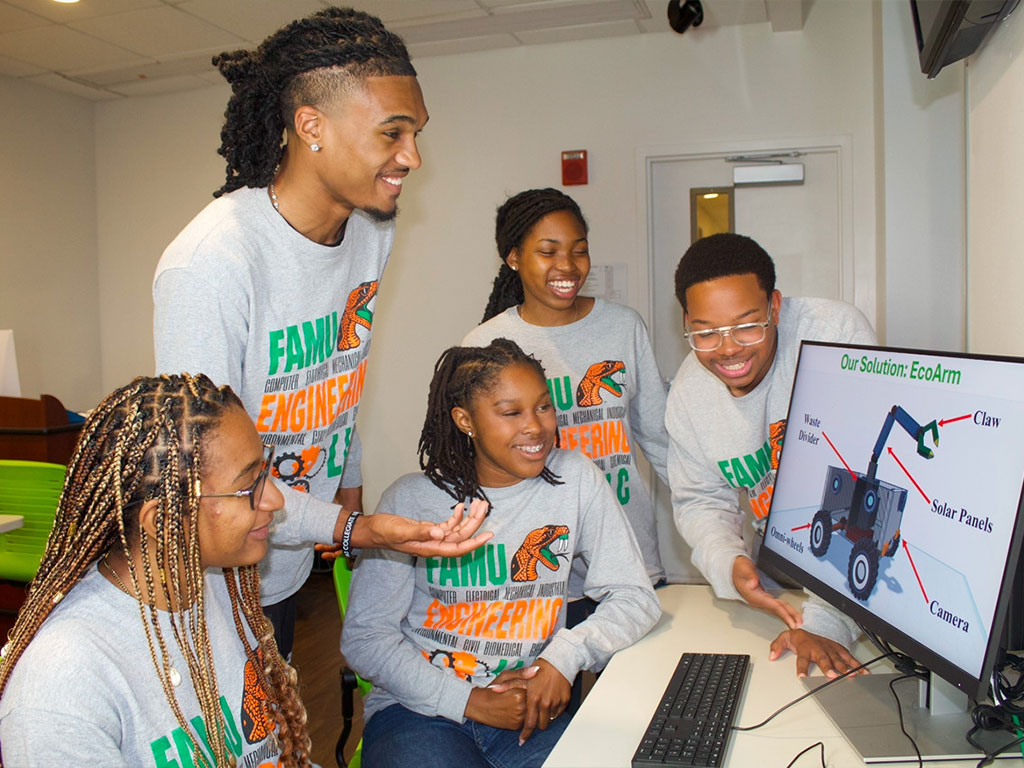FAMU Freshmen Win $20K Innovation Prize for Eco-Friendly Robot at National Competition

Tallhassee, Fla.— Florida A&M University’s Engineering Student Access programs once again prove that the future of engineering is bright by producing talented freshmen engineers.
This year, two student teams from the 2024-2025 Engineering Student Access cohort competed in the Henry Ford Learning Institute Test Track Competition, going head-to-head with seven other university teams from across the country.
One of FAMU’s standout teams—comprising Kaeden Levarity, Logan Kendall, Jade White, Micah Lee, Jackson Norflis, and Layla Brown brought home the "Social Innovation" Award for their environmentally conscious concept, “EcoArm.” They will also receive $20,000 from Ford to develop and implement their idea.
“Knowing I helped create something new is one thing, but knowing that my creation will make an impact is what makes the challenges worth it,” said Norflis when asked how he felt about competing in the competition.
The Ford Institute challenges student innovators to address real-world issues through original, community-centered, and ethical engineering solutions by learning and doing. The competition unfolds in three phases: identifying a pressing community issue, developing a viable solution, and presenting a fully modeled concept.
The FAMU team chose to tackle environmental health, envisioning a mobile robotic system capable of identifying, collecting and sorting recyclable and non-recyclable waste. Their invention, EcoArm, leverages 3D modeling and machine learning technology to recognize and sort materials accordingly. Future enhancements include integrating solar energy to power the unit sustainably. Each team had time between October and April to display their creativity.
“Our team was excited we were able to utilize 3D modeling software such as TinkerCad to visualize our design and watch it come to life in a virtual environment,” Lee said.
Charmane Caldwell, Ph.D., director of Student Access at the FAMU-FSU College of Engineering, praised the students’ ingenuity and dedication.
"Seeing the journey of these freshmen over the last six months has been simply exceptional. I'm excited not only to see how creating their first prototype goes but how they will make an impact in their communities,” she said.
With their $20,000 seed funding, Team EcoArm plans to create a working prototype with the hopes of partnering with local nonprofits to pilot their device. Their success exemplifies what can happen when young minds are empowered with the right tools and resources.
FAMU's Engineering Student Access programs continue to lead the charge, turning ideas into action and students into engineers of the future.
Media Contact:
Rachel James-Terry
rachel.jamesterry@famu.edu

